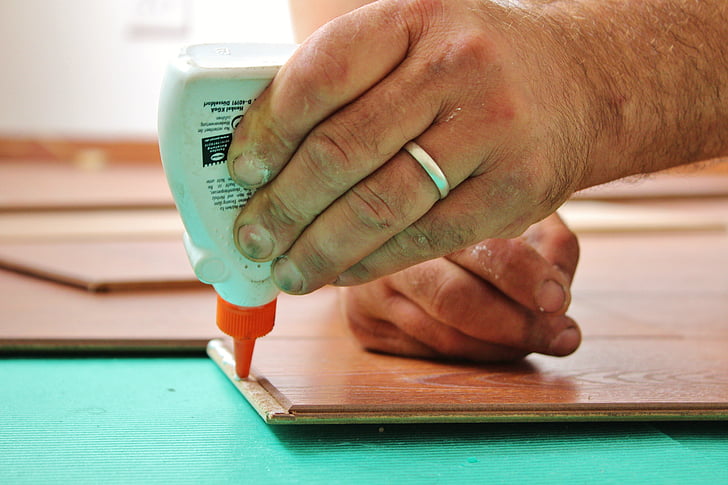Wood is a very sensitive material and for sure during your woodworking projects , you’ll need to connect – join your wood pieces in order to make your creations a reality .
But as you can imagine connecting – joining a material as wood is which is “alive” , isn’t a “job” you should take it “light” .
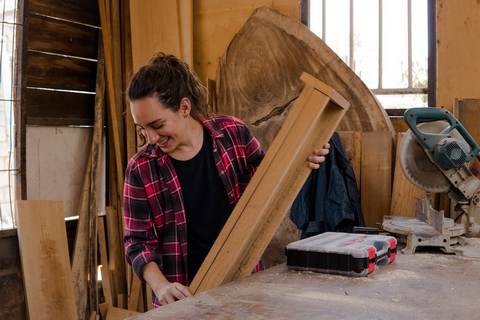
All the wood activites need attention and respect from you and if you aren’t in the “correct” mood to continue your wood plan , it’s better not to do it and leave it for another day .
Because a “bad” phychology can ruin your projects and brings to you more problems than happiness .
Wood isn’t something you get and buy from the local store , act with it for a couple of minutes or hours and make a wood plan with easiness as you drink a glass of water .
I suppose you have cut it by yourself , or with the help of a cutting machine and the pieces and boards are ready and waiting you , to make your woodworking project .
These are the 4 common wood Joints .
If you are new in woodworking and you don’t have the tools to make other wood joinery there are 4 very common ways to connect your wood .
These 4 ways can be used from anyone , even if he is an advanced woodworker , because you don’t want always connect your wood with the “hard way” .
1) Connect with pins .
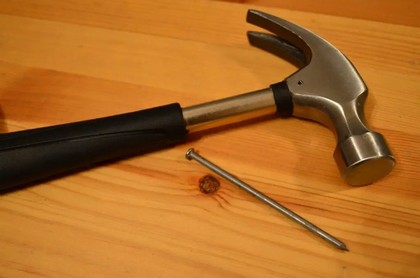
2) Connect with screws .
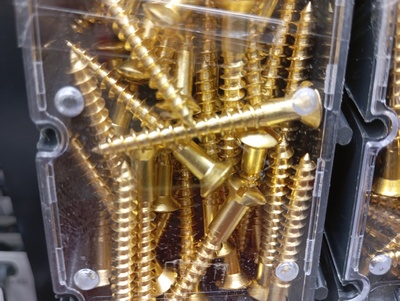
3) Connect with wood glue .
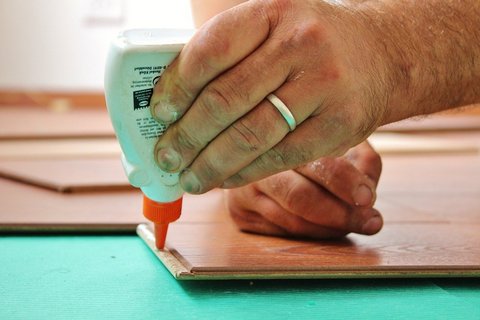
4) All the above mixed .

These are the most common ways to connect 2 wood surfaces together , if you don’t have any other way to do it . Later you can do more advanced joinery . You’ll use dowel joints , dovetails , et.c .
I’ve made many wooden projects and they are “alive” and in best “shape” for many years . You don’t need to be the best woodworker outhere to have fun and make very good wood projects .
Have some basic tools , a couple of hours , your favorite coffee and music and you are ok .
Old wood is a “tough” wood .
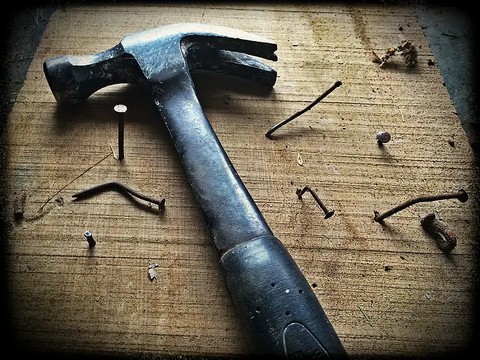
I don’t know your personal preferences , but i like many of my wood plans to be big and very comfortable for my weight and size . So as you can imagine to have many pins and screws is a must .
Have you ever tried to penetrate the 150 years old wood by screwing, using only your bare hands ? It is like you try to screw in cement . After some screwing moves , your palm’s skin will peel and the pain will be big .
So it’s a “wise” thing to have a screw gun , to do the tough “missions” .
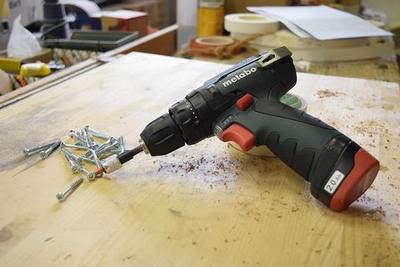
Wood Glue isn’t so “Bad” .
The wood glue is a very good “assistant” for you and especially in your first days as a woodworker , will make your life easier .
You can combine the screwing and nailing with a very good quality’s glue you can find in the market and secure the stability of your plans , for many years .
Yes even if you let your wood parts outdoor . If you use a nice wood protecting oil often to your projects and you fix any possible “issues” to your wood , you’ll keep it in a very good “shape” .
Here are some wood glue tips :
1) Match the two surfaces , perfectly .
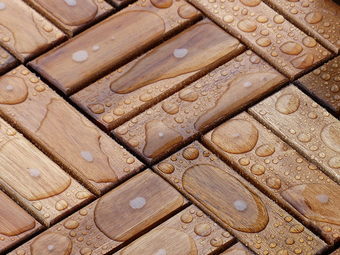
The 2 wooden surfaces should be as smooth and highly matched to each other , as you can . The 2 wood surfares you want to connect with wood glue , must be as smooth as you can and the most important , they should match to each other in the higher possible grade .
So no matter if you have cutted your wood pieces with a handsaw or by using a machine , you should rub the 2 surfaces with a sandpaper , to make it smooth .
Bring the 2 pieces together and make the rubbing adjustments it needed , to make them match perfect . If the 2 surfaces have big gaps between them , the glue connection won’t be good .
I have some wood fillers-wax sticks and more products to buy for your preparation , in HERE .
2) Let the surfaces to suck the glue .
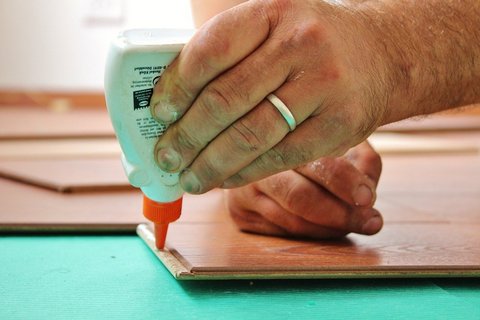
The two surfaces must “suck” as more glue they can before you bring them together .This is also very importand . The 2 wood pieces must be allowed to suck as much glue quantity they can , before you tighten them together and let them stick .
The glue must enter as deeper as you can to the 2 surfaces , it must enter inside the wood molecules as much as it can . And after that , you’ll bring the surfaces together using your clamps and let them to stick for quite a time .
When the glue will penetrate the surfaces in a deep depth your loinery will be very resistance to time and the external circumstances .
Let the glue to penetrate deep to the wood surface you want to connect . As you can imagine the “soft” woods have better glue properties than the “hard” woods , because the glue can penetrate deeper in them .
After that you can stick together your wood with as many clamps as it needed and let it connect without touching it for sometime . Usually a couple of hours or maybe a day if you want to be 100% certain for the result , is enough .
Using glue during the winter .
If you want to connect using pins , screws and glue to secure your wood project’s stability to the maximum , during the winter months which the wood is colder than usual , do this :
Try to warm a little the surface you are about to glue , so it can have bigger ability to “suck” more glue . A cold wood piece has its molecules more stiff and its ability to suck big amounts of glue is lower than the summer months of the year .
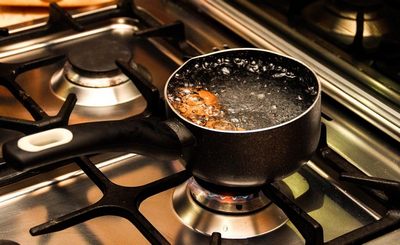
The old days they , they warm their wood near their fireplace and then they glue it . I hope the above will help you making very nice and stable wood plans .
You can make magnificent projects and with colossal strength , by using pins , screws and a good quality’s glue to secure your connections .
You should always improvise a little and have an “open mind” in order to accomplish a wooden “mission” .
Keep up the woodworking hobby and give your soul “tons” of happiness .
